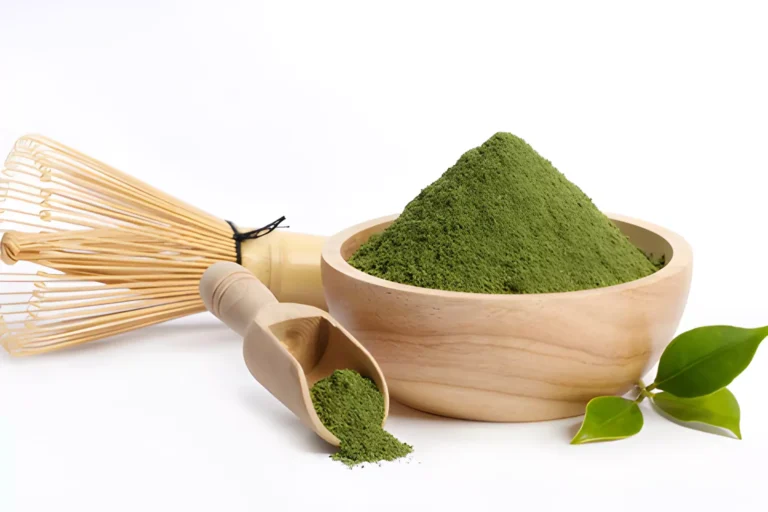Cumin Seeds Vs Fennel Seeds: Compared with Nutrition Value
Cumin seeds and fennel seeds are two popular spices widely used in various cuisines worldwide. They belong to the same plant family, Apiaceae, but they are different plants with different characteristics. Although they can be used as a substitute, they are different in colour, shape and size.
In this article, I will compare cumin and fennel seeds in terms of appearance, flavour, nutrition, health benefits, and culinary uses. Apart from this, I will also show you other ingredients that can be used as substitutes for cumin and fennel seeds.
Difference Between Cumin Seeds Vs Fennel Seeds
Cumin and fennel seeds may look similar at first glance, but they have some noticeable differences in size, colour, shape, and texture. Cumin seeds are smaller and more compact than fennel seeds, with a brownish colour with ridges along their surface. Fennel seeds are larger and more oval-shaped than cumin seeds, with a greenish colour with thin stripes on their surface.
The flavour and aroma of cumin and fennel seeds are also quite different. Cumin seeds have a warm, earthy, and slightly bitter taste reminiscent of curry, chilli, and cumin powder. Fennel seeds have a sweet, licorice-like flavour similar to anise, star anise, and fennel bulb. Cumin seeds have a strong and pungent smell, while fennel seeds have a mild and pleasant aroma that is more subtle and refreshing.
Fennel vs Cumin Seeds Nutrition Comparison
Cumin seeds and fennel seeds are both rich in nutrients and antioxidants that can benefit your health. According to the USDA National Nutrient Database one tablespoon (6 grams) of cumin seeds provides 22 calories, 1.3 grams of protein, 1.3 grams of fat, 2.6 grams of carbohydrates, 0.6 grams of fiber, and 0.1 grams of sugar.
While one tablespoon (6 grams) of fennel seeds provides 20 calories, 0.9 grams of protein, 0.9 grams of fat, 3 grams of carbohydrates, 2.3 grams of fiber, and 0 grams of sugar. Here is a complete nutritional comparison of cumin seeds vs fennel seeds.
| Nutrient (per 1 tablespoon, approx. 6 grams) | Fennel Seeds | Cumin Seeds |
|---|---|---|
| Calories | 19 | 22 |
| Carbohydrates | 3.5g | 1.3g |
| Protein | 0.7g | 1g |
| Total Fat | 1g | 1.3g |
| Fiber | 1.1g | 0.6g |
| Calcium | 44mg | 22mg |
| Iron | 0.64mg | 1.39mg |
| Magnesium | 10mg | 7mg |
| Phosphorus | 10mg | 8mg |
| Potassium | 42mg | 22mg |
How to Substitute Cumin Seeds in Recipe
Cumin seeds, also known as zeera, are a common ingredient in many dishes from Indian, Middle Eastern, Mexican, and Moroccan cuisines. It adds a distinctive flavour and aroma that is hard to replicate with other spices. However, if you don’t have cumin seeds on hand or want to try something different, you can use some alternatives with a similar or complementary taste.
Some possible substitutes for cumin seeds are:
- Ground cumin is the most straightforward and most apparent substitute for cumin seeds. You can use ground cumin in the same amount as cumin seeds in most recipes. However, remember that ground cumin loses its flavour faster than whole cumin seeds, so store it in an airtight container away from heat and light.
- Caraway seeds: Caraway seeds have a nutty and slightly peppery flavour that resembles cumin seeds. They are often used in European cuisines, such as German sauerkraut or Irish soda bread. You can use caraway seeds in equal amounts as cumin seeds in recipes that call for a mild or subtle cumin flavour.
- Coriander seeds: Coriander seeds have a citrusy and floral flavour that complements cumin seeds well. They are often used together in spice blends such as garam masala or curry powder. You can use coriander seeds in half or equal amounts as cumin seeds in recipes that call for a more complex or exotic cumin flavour.
- Fennel seeds: Fennel seeds have a sweet and licorice-like flavour that contrasts with cumin seeds. They are often used in Mediterranean cuisines such as Italian sausage or French bouillabaisse. You can use fennel seeds in half or equal amounts as cumin seeds in recipes that call for a more sweet or refreshing cumin flavour.
How to Substitute Fennel Seeds in Recipe
Fennel seeds are a versatile spice that can be used in savoury and sweet dishes. They add a sweet and licorice-like flavour that enhances the taste of meats, vegetables, bread, desserts, and beverages. However, if you don’t have fennel seeds, you can use some of its substitutes with similar or compatible tastes.
Some possible substitutes for fennel seeds are:
- Anise seeds: Anise seeds have a strong and sweet licorice-like flavour similar to fennel seeds. They are often used in Asian cuisines, such as Chinese five-spice powder or Vietnamese pho. You can use anise seeds in the same amount as fennel seeds in most recipes.
- Star anise: Star anise is a star-shaped spice with a more intense and pungent licorice-like flavour than fennel seeds. It is often used in Asian cuisines such as Chinese braised pork or Indian biryani. You can use star anise in smaller amounts than fennel seeds in recipes that call for a more vigorous or more spicy fennel flavour.
- Dill seeds: Dill seeds have a mild and slightly bitter flavour that resembles fennel seeds. They are often used in European cuisines such as Scandinavian gravlax or Russian pickles. You can use dill seeds in equal amounts to fennel seeds in recipes that call for a milder or more subtle flavour.
- Cumin seeds: Cumin seeds have a warm and earthy flavour contrasting with fennel seeds. They are often used in Middle Eastern cuisines, such as hummus or falafel. You can use cumin seeds as fennel seed substitute in half or equal amounts in recipes that call for a more savoury or smoky flavour.
Conclusion
Cumin and fennel seeds are different spices with different characteristics and uses. Cumin seeds have a warm and earthy flavor that is great for savory dishes, while fennel seeds have a sweet and licorice-like taste for both delicious and sweet dishes. Cumin seeds are higher in iron than fennel seeds, while fennel seeds are higher in fibre than cumin seeds. Both spices are rich in nutrients and antioxidants that can benefit your health.
If you want to substitute one for the other, you can use some alternatives that have similar or complementary flavors. For example, you can use ground cumin, caraway seeds, coriander seeds, or fennel seeds to replace cumin seeds, depending on the recipe and your preference. Similarly, you can use anise seeds, star anise, dill seeds, or cumin seeds to replace fennel seeds, depending on the recipe and your taste.




